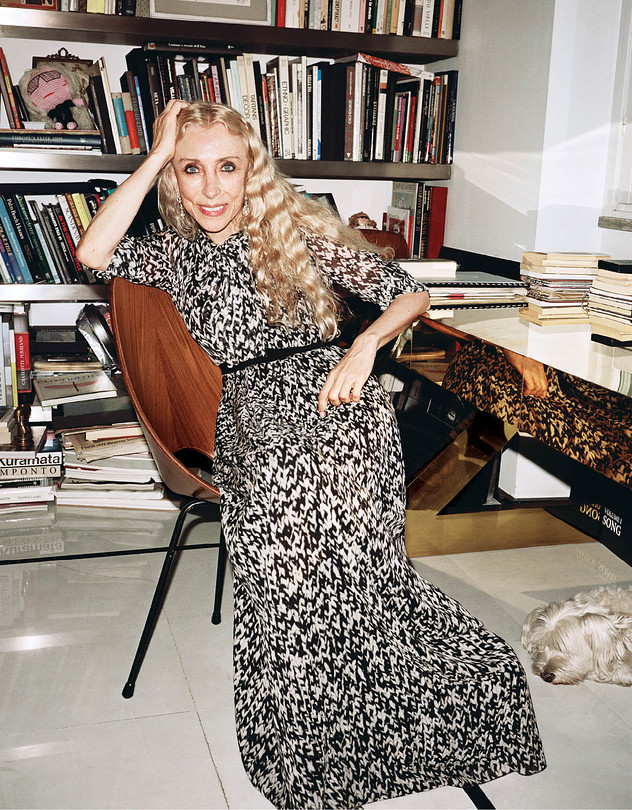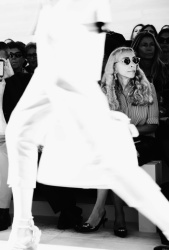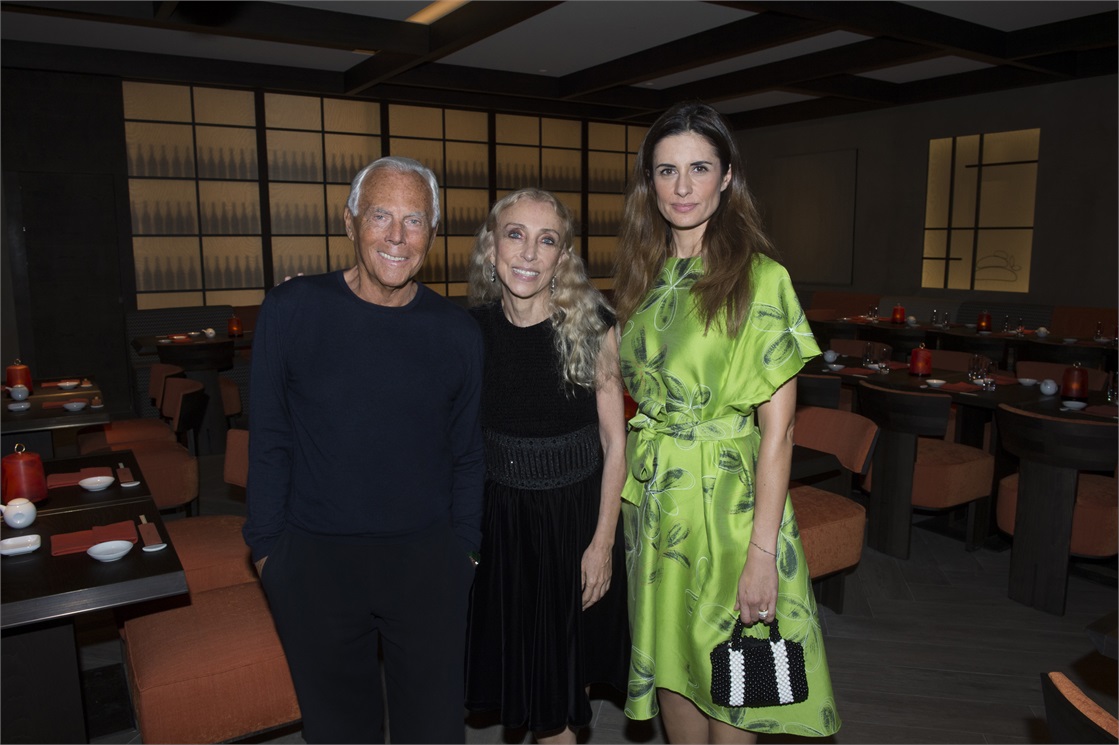Buro 24/7 Rome correspondent Veronica Scheinin takes the opportunity to meet Franca Sozzani, Editor-in-Chief of Vogue Italia at the city's recent fashion talent spotting contest, 'Who is on Next?'
Vogue Italia has been in print for fifty years, and for half od that time period it has been run by Franca Sozzani serving as the most avant-garde and provocative publications in the Vogue family of magazines.
Sozzani has been known to challenge racial prejudice and social stereotypes through fashion, and in turn has one of the most controversial, and influential editors of all time. Buro 24/7 takes the opportunity to sit down with her during a recent talent spotting competition in Rome to find out more...
You have been at the helm of Vogue Italia 26 years. How did you make this "purely Italian magazine" under the jurisdiction of the most prestigious fashion title in the world?
I was not afraid to take risks. Things do not always go smoothly, moreover, at first they refused to take on my ideas and what I was doing, generally few people liked it. But I continued, insisted, because I was convinced I was right.
Do you remember your first issue of Vogue? What was it like?
Of course. I started with a total clean up. The idea was to start with a clean slate. So I put on the cover photo model without make-up in a simple white shirt on a terracotta background with the word "new". This was unexpected, minimalistic and absolutely contrary to what Vogue was doing: big jewellery, bright make-up, luxury dresses. It was a way to mark the beginning of a new stage.
Do you have a favourite issue?
Perhaps, The Black Issue. And Makeover Madness.
Do not you think that sometimes you perhaps went too far?
Yes, more than once. I made a lot of mistakes. Slips happen, that's fine. When there is a clear concept and the idea that you believe and errors happen - it is not end of the world.
You have helped to launch the career of many photographers - Steven Meisel, for example. Would you say that Vogue Italia's main component I the visual side of the magazine?
One hundred per cent. I had only one way to tell the world about what we were doing - with the help of images. We only speak Italian in Italy. It's not English or Spanish, spoken by half the world. Pictures to me are a universal language, my way of communicating with the world. It is how we are working today too, including Instagram.
Do you use Instagram?
Yes, but not for myself. For competitions, auditions, search for young talents.
How do you rate Vogue in other countries? What is the main difference between Vogue Italia and the U.S. version?
American Vogue today is a phenomenal magazine for a mighty nation, and in this sense, Anna Wintour is doing unique work. The rest are more local.
So you would say Vogue Italia differs from the Vogue US?
Of course, just as different from the Italian / American real life. I can do a magazine about trends, and in the U.S. they think more that there is a housewife from Oklahoma, who will read the magazine. In America, Vogue sold in supermarkets. In Italy - no way.
Does this mean that you think American Vogue is mass-market?
Mass-market at the highest quality, so to speak. This edition, which manages to combine high quality and a commercial component, is taking into account the country and its people - there is a huge variation.
Despite this, Anna Wintour is often accused that she promotes elitist fashion...
Fashion is elitist. If you publish a photo of the dress is worth 200,000 dollars where is the democracy? This kind of work cannot be democratic. The so-called democratisation of fashion by 'fast fashion' with its low prices in fact only makes fashion more accessible. Real creativity and quality cannot be cheap.
You often compared to Anna Wintour. Do you agree with this comparison?
We're both open-minded, very open-minded. In this sense, probably, yes.
Yet you seem to be the more gentle person.
I am an open person. If I am stopped on the street and ask to take a picture for me - that is not a problem. Why not make be pleasant, it's just a photo? But for some, such requests can be a burden. Everything depends on the character.
In one interview you said that beauty is too boring, and for shoots you want models to looked strange or even ugly...
I hate a stereotypically beautiful appearance. If today's high fashion girl just has blond hair and blue eyes, does it mean that, for example, in Africa there are no beautiful women? I do not think so.
You recently returned from Paris. What was your impression of Haute Couture Fashion Week?
I was very pleased. It seems that high fashion finally has something new. Couture was previously the prerogative of a very small category of wealthy ladies who were eager to show off their money. Today, high fashion is not just a dress for red carpets and the Oscars. Couture has become more youthful, everyday - and less conservative.
You wrote recently that public fashion weeks have changed remarkably?
First, the audience has become more youthful. Second, it is also multinational. If fashion, especially haute couture, used to be mainly aimed at Western Europe and America, it s now Eastern Europe, and Asia. Fashion is becoming more universal. Of course, there is still a segment of the elite, but he is less significant.
What do you think of fashion bloggers?
There are interesting bloggers, and there are the absolutely meaningless. As in all things, there is a natural selection that will result in those who have something to say.
Some designers want to limit the presence of bloggers on their shows ...
I'm not against bloggers, I read many myself - but it's like a mass market, which allows everyone to be a fashionable thing. A blog gives you a chance to speak. Well, if you write nonsense, then this is your problem.
What are you most annoying in the fashion industry?
Stupidity and superficiality. This applies not only to the world of fashion.
Where do you see the future of fashion?
It's an evolution. What was fashionable yesterday, could be irrelevant tomorrow. The beauty of fashion is to always find new ideas.
And what will happen with Vogue Italia eventually - and all fashion magazines in fact?
I have no idea. I do not think I will read fashion magazines when that when I am have gone out of the industry...









































